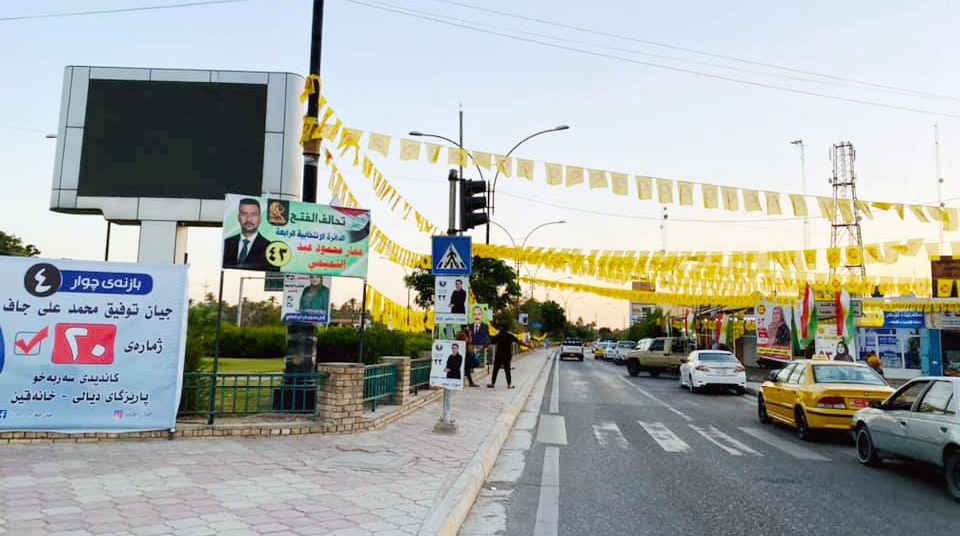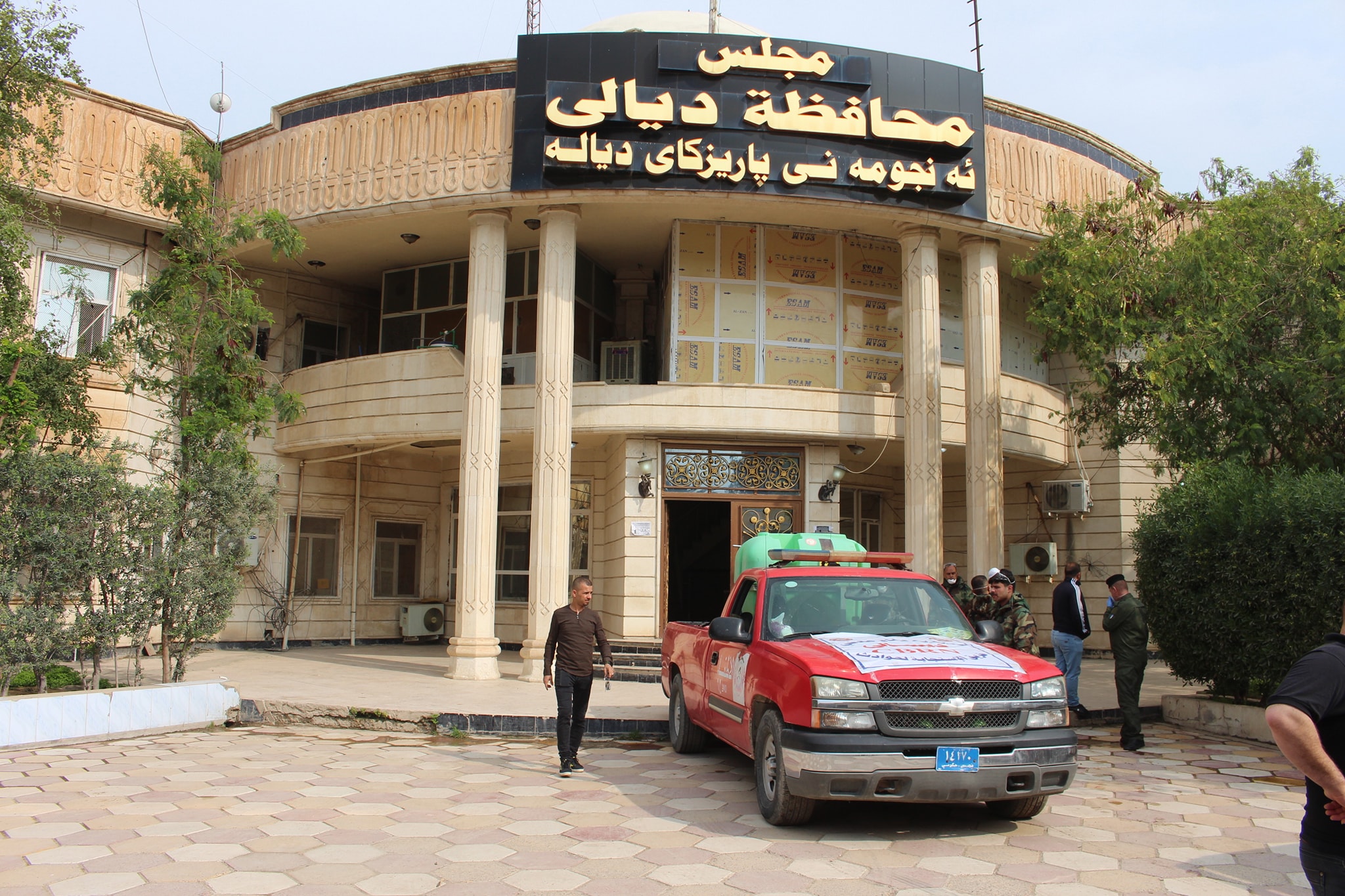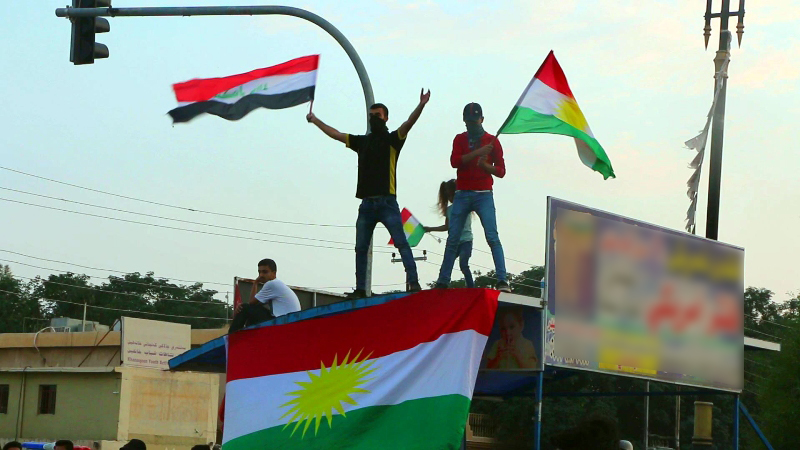The Kurdish parties fear losing their votes in the provincial council elections and failing to secure the seats they obtained in the previous elections due to the dispersion and filing of 50 candidates participating within the framework of three different lists.
According to KirkukNow's observations, the Kurdish political parties did not form any alliance for the Diyala Provincial Council elections, scheduled to be held on December 18, while some of them boycotted the elections or had no candidates.
Three Kurdish parties have officially announced their candidates: The Patriotic Union of Kurdistan PUK, with 30 candidates competing within the framework of an independent list, while the Kurdistan Democratic Party KDP has registered 16 candidates, and the Kurdistan Socialist Democratic Party KSDP has four candidates within an independent list.
Akbar Haider Khan, official of the Khanaqin branch of the KDP, says that five of the 16 candidates are competing to win the women’s quota seats, distributed in all areas of Diyala, especially in Khanaqin.
“We believe that the Kurds will win a seat or two in the provincial council,” Akbar told KirkukNow. He affirmed they sought for the Kurds to have a unified list to avoid a decline in the number of their seats, but their efforts failed.
In the 2013 elections, the Kurds, within the Fraternity and Coexistence List, obtained three seats out of the total of 29 Diyala Governorate Council seats, one of which went to the KDP and the other two to the PUK.
In the 2009 elections, the Kurds won six seats within the framework of the Kurdistan List, three of which were for the PUK and one seat each for the KDP, the KSDP, and the Kurdistan Islamic Union KIU.
We expect that Kurdish candidates will not win seats
Hussein Jalil, head of the Khanaqin Organization Center of the KSD, said that the party’s four candidates include one woman, and he did not hide his fear that “the Kurdish votes this time are in great danger. Most of the lists are participating with great potential... but the Kurdish parties, including our party, are participating with lists.”
“Independent and not united, our votes will be dispersed, so we expect that Kurdish candidates will not win seats,” he added.
Diyala Governorate Council seats were cut to 15 seats, according to the governorate’s population of more than 1,600,000 people, 90,000 of whom live in the center of Khanaqin district, according to estimates by the Central Bureau of Statistics for the year 2019.
The population of Khanaqin and its surrounding villages is 135,000, mostly in 36 neighborhoods. The district is a disputed area in northeastern Diyala province, 180 km north of Baghdad.

The number of voters in Diyala is more than 1,100,000 people, but less than a million people have obtained biometric voter card through which they can participate, and according to the Independent High Electoral Commission IHEC statistics, more than 11 alliances have been registered in the governorate.
“The number of Kurdish voters in Diyala is 100,000 people, so it is difficult for the Kurds to win more seats... Unfortunately, the Kurdish parties did not form a unified list... So we hope that Kurdish voters will participate so that we can obtain our rights in Diyala,” according to the KDP official in Diyala.
He believes that the Kurds “were unable to obtain their rights in the disputed areas and lost most of the positions” due to dispersion and the absence of a unified list.
Even before the events of October 16, 2017, most of the administrative positions in Khanaqin, dominantly Kurdish population town, and the security file of the district were in the hands of the Kurdish parties, before the forces affiliated with the federal government returned and the Peshmerga withdrew due to the repercussions of the independence referendum in the Kurdistan Region and the disputed areas.
(Kirkuk Now) repeatedly tried to communicate with Sherko Mirwais, the head of the Khanaqin Organization Center for the PUK, and other officials in the party, but they refused to make statements about the participation in the Diyala Provincial Council elections.
On Tuesday, October 31, 2023, the PUK announced that it will participate with an independent list made up of 30 candidates.
In the parliamentary elections that took place in 2021, the Kurds participated in the district of Khanaqin and its outskirts with seven independent and party candidates, and they won one seat, which went to the PUK.
Abbas Rahman, official of the Kurdistan Communist Party KCP in Khanaqin, says that they tried to unite the Kurds and participate with one list, but the PUK and the KDP refused to do so, so the Communist Party in Diyala decided to support the Iraqi Communist Party without registering any candidate.
“We have no candidates, because the seats for the Kurds will be reduced this time... We believe that fielding a large number of candidates is not in the interest of the Kurds, in order to avoid the dispersion of our votes and ensure winning one or two seats.”

The Kurdish parties decided to participate in the elections for the provincial councils of Kirkuk, Nineveh, and Salah al-Din as well, with dozens of candidates within different lists instead of participating within the framework of a coalition or a unified list.
“The failure of the Kurds to agree constitutes the biggest loss for the Kurds and the Kurdish parties, especially in Diyala and Khanaqin. Previously, we ruled Diyala Governorate until we gradually lost everything,” Abbas told (KirkukNow).
The failure of the Kurds to agree constitutes the biggest loss for the Kurds and the Kurdish parties
In the 2021 parliamentary elections, a candidate for the PUK won a seat after obtaining 21,722 votes, and a candidate for the KDP won another seat after securing 8,873 votes, meaning a total of 30,595 votes.
In the parliamentary elections held in 2018, the Kurds in Diyala obtained approximately 55,000 votes, while the number of votes obtained by the PUK, KDP and other Kurdish parties in the 2014 elections was more than 61,000 votes.
“The center of gravity of the Kurds is currently in the center of Khanaqin, because we lost Al-Saadiya, Jalawla, Mandali and others, but we are still in the majority in Khanaqin,” says KSDP official.
“Most of the voters there did not participate in the previous elections, and if the matter is repeated, the Kurds will be greatly harmed, because the voters see that they are robbed of their rights and will boycott elections.”
Hussein Jalil stated that his party feels frustrated because their efforts to form a unified list have failed. “We wanted to work for the Kurds instead of the parties in Khanaqin, but everyone preferred their party interests over the interests of the Kurds, which will greatly harm the Kurds and the Kurdish parties.”
Khanaqin and other areas in Diyala, which are inhabited by a mixture of Kurds, Arabs, Turkmen and the Kakai religious component, are considered among the disputed areas between the Iraqi federal government and the Kurdistan Regional Government KRG, according to Article 140 of the Iraqi Constitution.
Provincial council elections are scheduled to be held on December 18, 2023. This electoral process has not been held in the governorates of Iraq since 2013, and Kirkuk Governorate participated in it this race once in 2005.





